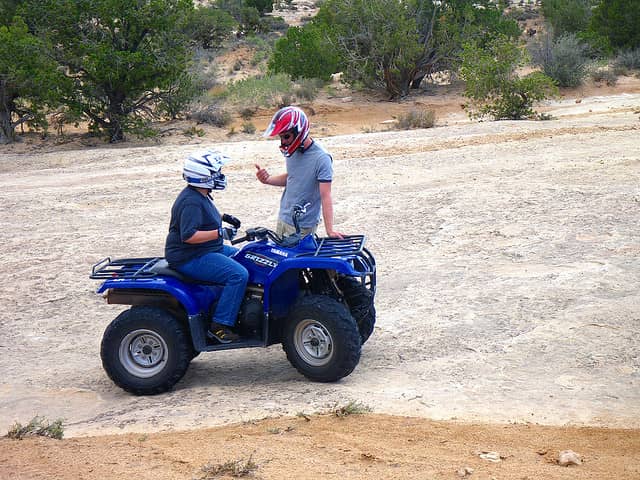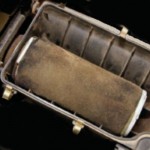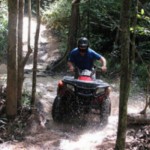5 Ways to Negatively Affect ATV Performance
ATVCamper 06.13.12

Did you know you can alter the performance of your ATV just by doing nothing? Yes, by not properly maintaining your ATV before and after each ride the performance will slowly degrade. From what I have learned the following are the 5 most common bad ways to alter the performance of your ATV.
Never Clean the Air Filter
 If you read my post “Your ATV Engine – Just A Big Air Pump” you would understand that your engine needs to breathe. Riding with a dirty air filter basically causes your engine to gasp for air, which means more energy is used trying to get air into the engine and less power is being generated by the engine.
If you read my post “Your ATV Engine – Just A Big Air Pump” you would understand that your engine needs to breathe. Riding with a dirty air filter basically causes your engine to gasp for air, which means more energy is used trying to get air into the engine and less power is being generated by the engine.
Continued operation with a dirty air filter may cause the filter to rupture or breakdown causing dirt and debris to enter the engine causing permanent damage and possible seizure. Inspect your air filter after each ride and clean or replace if necessary.
Never Change the Fluids
All moving metal parts of your ATV are separated from other metal parts by a thin film of lubricant. This film of lubricant is necessary especially in your engine to help prevent wear and heat. Without the film of lubricant metal parts would physically rub against each other producing premature wear and possible seizure of the parts.
If the lubricant becomes dirty with contaminates, then these contaminates can cause scoring of metal parts and break down of the lubricant. Once a lubricant has broke down due to excessive heat or contamination it loses its properties to protect the metal surfaces. Always check and replace lubricants (engine oil, gear oil) per manufactures recommendations.
If your ATV is water cooled the coolant used also serves to lubricate the water pump as well as keep the engine from over heating. This coolant also has special additives to help prevent corrosion of the radiator and the cooling channels within the engine. Always check the coolant level before each ride and replace coolant per manufactures recommendations.
Never Tighten the Nuts and Bolts
The nuts and bolts of ATVs are exposed to all sorts of environmental conditions and vibrations. Over time this can cause these nuts and bolts to loosen and if not checked they can even unfasten on the trail. If these nuts and bolts are holding a critical assembly the result of unfastening will riding can be catastrophic.
Manufacturers specify specific tightness or torque of nuts and bolts on an ATV. Inspect critical assemblies after each ride. Periodically check all fasteners per manufactures recommendations.
Never Wash It
 Your ATV picks up all sorts of dirt, mud and debris when you ride. If not cleaned off this debris can build up, restricting proper movement of certain assemblies resulting in poor handling. Also some of this debris may be plant materials. By not washing your ATV after a ride you risk the spread of invasive species in our national parks and forests.
Your ATV picks up all sorts of dirt, mud and debris when you ride. If not cleaned off this debris can build up, restricting proper movement of certain assemblies resulting in poor handling. Also some of this debris may be plant materials. By not washing your ATV after a ride you risk the spread of invasive species in our national parks and forests.
It’s recommended to wash your ATV after each ride, this also allows for better inspection for damage and loose hardware. Removing dirt deposits from your ATV also reduces the chances of rust and corrosion that eventually weakens frames and assemblies.
Never Grease It
As stated earlier all moving metal parts of your ATV are separated from other metal parts by a thin film of lubricant. Some of these moving parts use grease as a lubricant instead of oil for example the A-arms and wheel bearings. Follow the manufacturers recommendation for periodic greasing of your ATV.
Don’t permanently alter the performance of your ATV. Conduct the simple routine maintenance on a regular basis and enjoy riding your ATV for years to come. For more information read my post on DIY ATV Maintenance.

